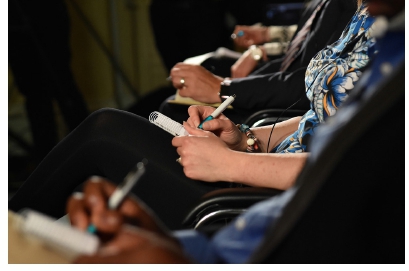Serviços Personalizados
Artigo
Indicadores
Links relacionados
-
 Citado por Google
Citado por Google -
 Similares em Google
Similares em Google
Compartilhar
South African Dental Journal
versão On-line ISSN 0375-1562
versão impressa ISSN 0011-8516
S. Afr. dent. j. vol.76 no.4 Johannesburg Mai. 2021
EDITORIAL
The importance of continuing professional development
Neil H Wood
Managing editor. Email: neil.wood@smu.ac.za

As healthcare professionals we And ourselves in a dynamic field that constantly evolves and pushes the knowledge frontier ahead of us. This is accompanied by the steady development of new skills, procedures and techniques.
This requires of us to keep up with these developments, to improve and develop ourselves, and to learn new things. If we fail to do this, we will become irrelevant, lose track with the latest developments, and may even end up providing harmful treatment to our patients.
Our professional training is aimed at creating lifelong learning. We have been empowered by receiving the foun-dational knowledge and skills to facilitate our entry into the profession. The skills we received further serve to guide us towards seeking answers to daily challenges, and to expand our skillset according to the need in any particular scenario. We have to access a variety of resources to achieve the required self-development, whether electronic, conferencing or other similar interactions, or even furthering formal qualifications.
Continuing professional development (CPD) is achieved in different ways. Ideally CPD activities should be engaging and must serve the intended purpose. For that reason, it must be monitored and occasionally audited. Similarly, CPD providers must be held to a high standard and be accountable for administering such an important task. This will ensure that it achieves its intended purpose.
It is for this reason that all CPD activities must undergo detailed scrutiny, and proof of monitoring or assessment must be recorded and submitted for verification, and Anally, accreditation. An ethical responsibility also resides with the accreditor to certify that the CPD activity is of a sufficient standard and intensity to ensure that learning takes place.


The formalization of CPD activities may be controversial to some. On the one hand it provides healthcare regulators the surety that practitioners remain current, valid and up to date. It ensures development of individuals within a given profession and safeguards the patient and community.
On the other hand, some And this process tedious, controlling and suggestive of mistrust in the practitioner. Whatever the view, the practitioner remains with the professional and moral obligation to continue to improve and to develop. We must embrace the career-long effort to ensure that patients benefit from current and relevant procedures and knowledge, that we contribute to the progression of the knowledge frontier, and that we impart this to those who come after us. It must also be considered that in order to influence policy and decision making, one has to be abreast of current developments within your scope of practice.
Continuing professional development should not be seen as a waste of time or effort, but rather as an opportunity to improve and to contribute to the profession, to the patients, and to society. It is our responsibility to ensure we maintain competency within our profession.
We present to you the May edition of the 2021 South African Dental Journal and thank our contributors for sharing their valuable knowledge with us all.














